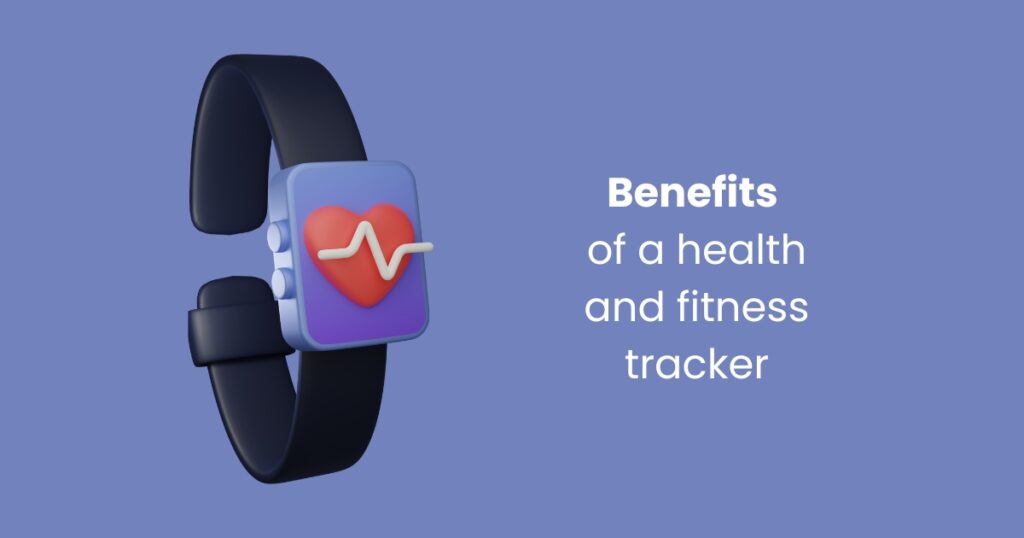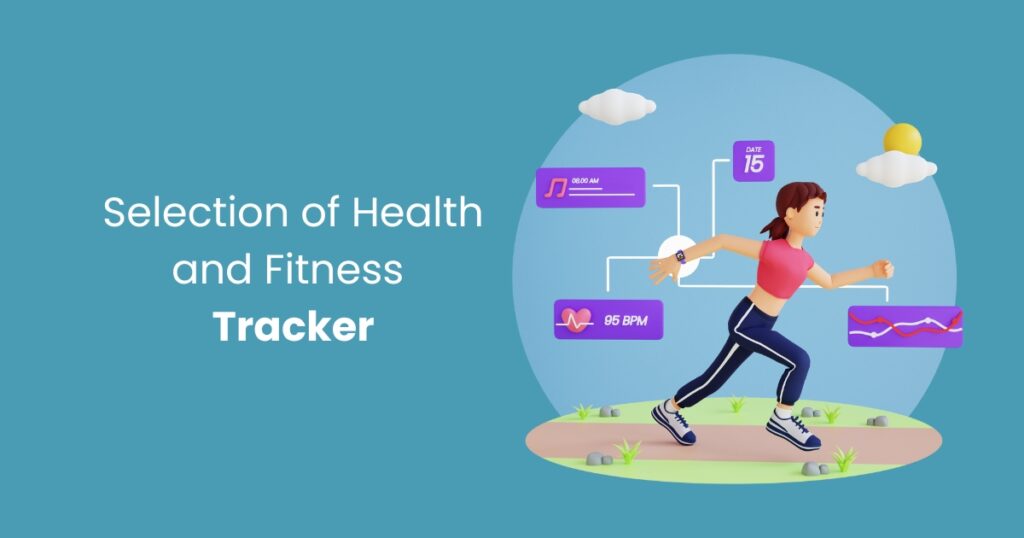Over the last decade, health and fitness trackers have exploded in popularity from basic pedometers to more advanced devices capable of tracking a range of physiological and environmental metrics. SOURCE: A Health & fitness tracker is a wearable gadget that tracks down the users’ daily physical activities and health information such as steps count, and calories burned in everyday activity by wearing it on your wrist with seamless easy access to see live heart rate tracking sleep patterns of night or even blood oxygen level out worked throughout pit during days.
These devices often sync with smartphones and computer interfaces, which enables users to process data from their logs over some time. These trackers aim to impart positive behaviour change by giving immediate feedback and nudging individuals toward health goals regarding fitness as well as wellness.
What Do Health and Fitness Trackers Measure?
Health and fitness trackers use a variety of sensors, and data analysis algorithms to track an individual’s activity as well as physiological state. These sensors such as accelerometers, movement and orientation detectors; gyroscopes that measure rotation; or optical sensors like heart rate monitors along with blood oxygen levels. Advanced trackers add slower GPS to trace the location and distance (both indoor and outdoor activities such as running) carried out.
The information gathered by these sensors is analyzed using algorithms to tell you different things about your health (like how many steps you take, or the quality of a night’s sleep… Maybe even how hard worked out that day). This way, the information is made available on-device or through a paired app in easy-to-read formats that provide insights into various aspects of our lives.

Benefits of a health and fitness tracker
Wearable health and fitness trackers provide a variety of benefits for those seeking to enhance their overall level of wellness. First, they keep you motivated and accountable. As a daily motivator, allowing users to see success on their wearables in terms number of steps/miles/calories burned can foster more active users setting attainable fitness objectives. On top of this, a number of trackers have developed social aspects like providing challenges and leaderboards to help users feel less alone when burning among each other.
In addition, health trackers reveal insights about personal health trends (e.g. discovering sedentary periods of inactivity, inadequate sleep quality or an irregular heart rate), all vital for addressing prevention measures early on before any healthcare conditions arise and get out of hand.
Favorite Health and Fitness Trackers Features
Today, Health and fitness trackers are loaded with versatile features as per the demand of health & fitness requirements by an individual. A few of the most requested features are taking steps to track daily physical activity levels, and heart rate reading to help manage overall health plus workout intensity. Another likely feature is its sleep tracking functionality that helps users to better understand their own sleeping habits in order to improve the quality of rest at night.
Other features might include calorie monitoring, steps and distance tracking or even reminders to get up and move after periods of inactivity. In addition, more advanced trackers provide guided breathing and stress measurements as well as monitor your menstrual cycle.
What Health & Fitness Trackers Can Do For Disease Prevention?
How Health and Fitness Trackers Can Help Prevent Disease — And Far More This makes the wearable devices capable of detecting early signs of imminent health problems, such as anomalies like arrhythmia or too much inactivity associated with increasing risks for cardiovascular diseases – by continuously tracking vital signs and physical activity. With chronic conditions such as diabetes or hypertension, trackers are essential for overseeing this group of patients and managing their health status in a more effective way.
Also, with them nudging people to lead a physical life and adopt healthier lifestyles, owning a fitness tracker may help prevent lifestyle-related disorders like obesity, type 2 diabetes or heart disease.

Selection of Health and Fitness Tracker
Take into consideration your own personal health aims when buying a well-being and fitness tracker. A basic tracker with a step counter and calorie counting might be enough for someone new to get active. However, for more intense workouts or those with health concerns, a tracker that offers GPS and heart rate variability/SpO2 will be ideal. Battery Life: How long does it last between charges Comfort In Ear: how comfortable it is to wear Compatibility With Other Devices Good App Interface The good news is that with the extensive number of trackers out there, it’s easier than ever to find one suited for you.
Data Privacy and Security in Health Trackers
Given that health and fitness trackers collect sensitive health data, privacy is a big issue for many users. Information like heart rate, sleep patterns and daily activity can be very personal as well as extremely lucrative to third parties (see: marketers/prying insurers). Needless to say, users should select only those devices and apps that provide good data privacy conforming policies with strong encryption functions as these sorts of regulations will keep your personal info more secure.
Most major brands also detail to what extent they collect and secure user information, while providing options that allow users more control over the info that gets passed along. If you keep this in mind and go with a trusted device, then your data will stay safe from all of these privacy issues.
Making health trackers part of your life
Using a health & fitness tracker in your everyday life can be an easy but very good way to improve your well-being. Before you set any goals, it is critical that they are realistic and reflect your current fitness level and health status. Check the health and fitness data to see if there are ways in which you can make a change like more movement or better sleep. Using things like reminders to move can help you stay active throughout the day, which are part of great tools for people who have a sedentary job.
Also, be part of a community or take on challenges to keep yourself motivated and engaged. These simple changes, over time, can significantly improve your health and fitness.
What’s Next For Health and Fitness Trackers?
Health and fitness trackers are expected to get even better in the future, with ever-evolving tech making way for more sophisticated health monitoring. Future trackers might feature even better sensors and algorithms capable of tracking very advanced health metrics such as hydration levels, and blood glucose, among other things and perhaps someday mental indicators like mood or stress.
Furthermore, the implementation of artificial intelligence and machine learning could increase tracker capability to offer personalized feedback as well as predictive analytics which can help individuals navigate potential health-related road bumps that might occur. If history serves as a guide, health and fitness trackers will probably only be an even greater part of the ongoing personal health management landscape in the future.
Conclusion
In summer, a health and fitness tracker is more than useful for anyone who wants to have a better quality of life. These devices track wearer movements, from basic step counting to advanced biometric monitoring that hints toward a more active and healthy lifestyle. If everyone can identify what areas of functionality and features are needed, a suitable health tracker should be selected for that purpose. As technology continues to evolve, health and fitness trackers will be more embedded in our daily lives serving the function of promoting good healing and keeping bad diseases at bay nurturing overall well-being.
